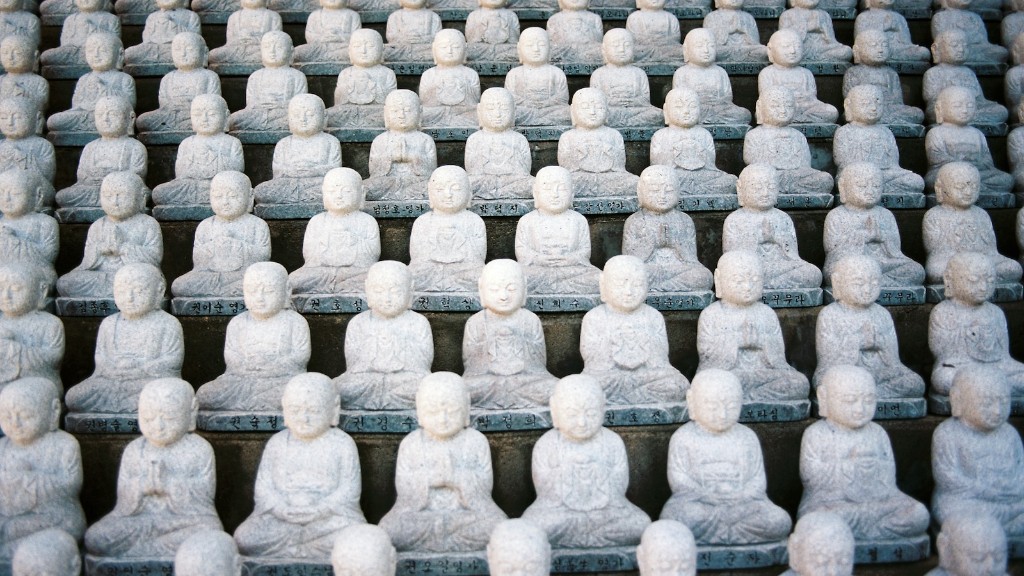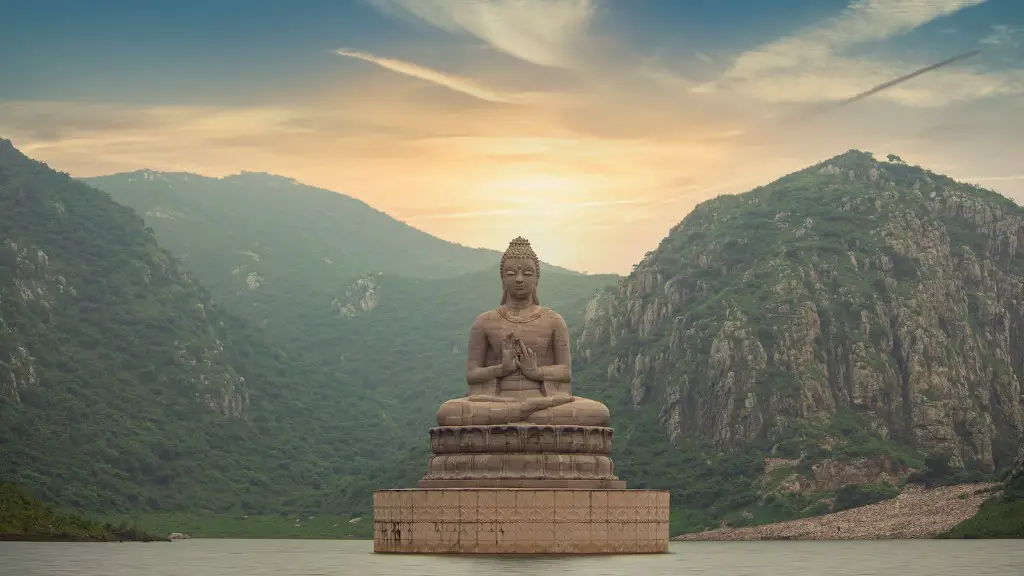Mahayana Buddhism is one of the two main schools of Buddhism, the other being Theravada Buddhism. Mahayana Buddhists accept the Pali Canon of Theravada Buddhism as well as other scriptures, and place emphasis on the Bodhisattva ideal, the ideal of a Buddha who postpones his own nirvana in order to aid all sentient beings in achieving emancipation from samsara.
The basic beliefs of Mahayana Buddhism are the Four Noble Truths, the law of cause and effect (karma), rebirth, and nirvana. Mahayana Buddhists also often emphasize the bodhisattva ideal, in which a person remains in the cycle of rebirth until all beings have attained nirvana.
What are 3 aspects of Mahayana Buddhism?
Mahayana Buddhism is characterized by a number of new developments in comparison to earlier forms of Buddhism. These include new sutras, written in Sanskrit and/or Chinese, a new model of enlightenment (the Bodhisattva), and new philosophical developments. Additionally, Mahayana Buddhism opened up new possibilities of enlightenment for laypeople, who were previously excluded from the path to Nirvana.
Buddhism is a religion that is based on the teachings of Siddhartha Gautama. The main principles of this belief system are karma, rebirth, and impermanence.
Karma is the belief that our actions have consequences, both good and bad. Rebirth is the belief that after we die, we are reborn into another form. Impermanence is the belief that everything is constantly changing and nothing lasts forever.
What is the main purpose of Mahayana Buddhism
Mahayana Buddhism is one of the two main branches of Buddhism, the other being Theravada Buddhism. Mahayana Buddhism is focused on helping all sentient beings achieve nirvana, or liberation from suffering. In order to achieve this, Mahayana Buddhists strive to develop compassion and wisdom.
The Mahayana tradition is widely practiced in China, Japan, Korea, and Vietnam. Mahayana Buddhism is also known as the Great Vehicle, in contrast to Theravada Buddhism, which is known as the Lesser Vehicle.
Mahayana Buddhism is a branch of Buddhism that emphasizes the bodhisattva ideal, the idea that everyone has the potential to become a Buddha. Unlike other Buddhists, Mahayana followers aspire to not only liberate themselves from suffering but also lead other people toward liberation and enlightenment.
The Mahayana tradition is the largest branch of Buddhism, with over half of all Buddhists belonging to this tradition. Mahayana Buddhism is found throughout East Asia, including in China, Japan, Korea, and Vietnam.
What is Mahayana vs Theravada?
There is a key difference between Theravada and Mahayana Buddhists when it comes to their respective goals. Whereas Theravada Buddhists strive to become Arhats and gain freedom from the cycle of samsara, Mahayana Buddhists may choose to stay in the cycle of samsara out of compassion for others. This compassion-driven motivation is what sets Mahayana apart from Theravada Buddhism.
The precepts are very important in Buddhism and are meant to help develop mind and character so that one can make progress on the path to enlightenment. They include commitments to abstain from killing living beings, stealing, sexual misconduct, lying and intoxication.
What are 5 beliefs of Buddhism?
The Five Precepts are guidelines for living a moral and ethical life. They are:
1. Refrain from taking life.
2. Refrain from taking what is not given.
3. Refrain from the misuse of the senses.
4. Refrain from wrong speech.
5. Refrain from intoxicants that cloud the mind.
The Avataṃsaka Sūtra is one of the most influential Mahayana sutras of East Asian Buddhism. The Avataṃsaka Sūtra describes the tree of Buddha-nature and the Dharma-nature, and emphasizes the importance of the practice of the Bodhisattva path. The Avataṃsaka Sūtra also teaches the principle of interdependence, and the emptiness of all phenomena. The Avataṃsaka Sūtra has been very influential in the development of East Asian Buddhism, and has been studied and practiced by many East Asian Buddhists.
What does Mahayana stand for
Mahayana is one of the main branches of Buddhism. It is also referred to as theGreat Vehicle, as it is said to provide the means for all beings to attain Buddhahood. Mahayana Buddhism is characterized by its emphasis on the bodhisattva ideal, which is the belief that all beings have the potential to achieve enlightenment. Mahayana schools also tend to be more inclusive than Theravada schools, and they often include otherworldly beings such as bodhisattvas and Buddhas in their cosmology.
Mahayana is a philosophical movement that proclaimed the possibility of universal salvation, offering assistance to practitioners in the form of compassionate beings called bodhisattvas The goal was to open up the possibility of buddhahood (becoming a Buddha) to all sentient beings.
What food is forbidden in Buddhism?
Buddhists believe that food should be prepared as a spiritual exercise with attention to balance, harmony, and delicacy. They follow the practice of conscious eating, whereby they are aware of the effects that their food choices have on their bodies, minds, and the world around them.
The Buddha himself advised monks to avoid eating 10 kinds of meat for self-respect and protection: humans, elephants, horses, dogs, snakes, lions, tigers, boars and hyenas. Today, many Buddhists continue to adhere to this practice, and some extend it to include all animals.
The Eightfold Path is an important part of Buddhist teachings, and it can help people lead a more contented life. By following the eight steps, people can develop a better understanding of themselves and the world around them, and learn how to live in a way that is more conducive to happiness and peace.
What are the 7 pillars of Buddhism
The Seven Factors of Awakening are important mental capacities in Buddhist tradition. They are known as “inner wealth” and are believed to be beneficial in achieving enlightenment. The seven factors are mindfulness, investigation, energy, joy, tranquillity, concentration, and equanimity.
Buddhism teaches that the way to end suffering is to develop wisdom and self-control and to live a life of loving-kindness and compassion. Buddhists also believe that all things are interconnected and interdependent, and that everything is constantly changing.
What God do Buddhist believe in?
There is no supreme god or deity in Buddhism. Followers instead focus on achieving enlightenment—a state of inner peace and wisdom. When followers reach this spiritual echelon, they’re said to have experienced nirvana. The religion’s founder, Buddha, is considered an extraordinary being, but not a god.
Buddhism teaches that drinking or using other kinds of drugs can cause carelessness and should be avoided. Strong Buddhist beliefs would be expected to have a significant impact on alcohol use.
Final Words
The basic beliefs of Mahayana Buddhism are that all beings have the buddha-nature, that buddhahood is attainable by all beings, and that the wisdom and compassion of the buddhas are infinite.
Mahayana Buddhism is a branch of Buddhism that emphasizes the Bodhisattva path, whereby one remains in samsara to help others achieve liberation. This path is based on the compassion that is innate in all beings. Mahayana Buddhism also teaches the concept of sunyata, or emptiness, which is the emptiness of all things of phenomenal existence.




